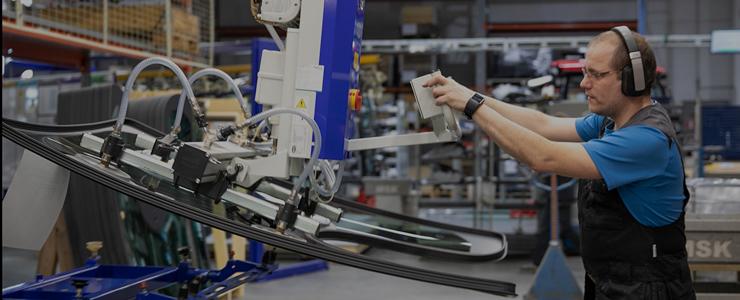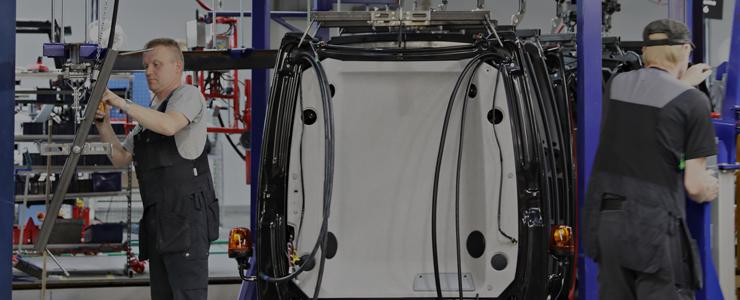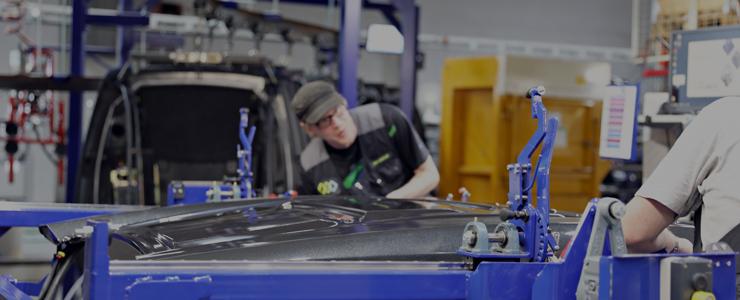Would you believe me if I told you that a week’s worth of work can be done in three hours? Whether you do or not, this is exactly what happened over the last century when productivity multiplied by 15 times. Were people just three generations back 15 times less effective? They certainly weren’t, and after a long day of toil, they still had all their daily chores to do. We are talking about a system-level change. Just over a hundred years ago, Finland was still a developing country, the last of the European backwaters. We didn’t industrialise our country all on our own. The know-how and capital required came from Russia, Scotland and Switzerland, among others, attracted by Finland’s cheap workforce, energy, raw materials and the large markets of our neighbouring states. Thanks to our improved productivity, we now have a high income level and our total working hours are roughly half of our great-grandparents’ working hours. Productivity has brought more well-being to the whole society. The time of bulk products is far behind; today, along with system-level productivity, we require top technology, innovations and 100% quality and security of supply.

At MSK Cabins the work is efficient, productive and safe.
As working methods have improved, old occupations have disappeared and new ones have emerged. For example, timber harvesting in Finland today provides employment for roughly 1% of the number of people in harvesting jobs in the 1950s. You no longer hear the sound of a bow saw in the forest and logs no longer float downstream along cleared waterways, but Finland produces some of the best-designed and manufactured tractors and forest machines in the world. These days, agriculture provides employment for approximately 4% of the Finnish population, while 100 years ago this figure was more than 70%. Along its 70 years in the business, MSK has played a significant role in improving efficiency in agriculture. The number of farms in Finland will fall by approximately 3% per year in the 2020s. This means that the surviving farms will become bigger. The growing size of farms will enable and require the continuous development of production methods. Today, agriculture involves large machines, automation, robotisation and data utilisation as part of precision farming.
According to economists, work productivity consists of human capital, fixed capital and ideas. The same economists say that the growth of work productivity in western industrial countries has slowed down almost throughout the 2000s, and the decline is even more pronounced in Finland. There are many low-productivity companies in this country, but the best ones are excellent. While everyone has the same preconditions for success, the least efficient companies are lagging and the most efficient ones continue to gain ground. Why are there such huge differences between companies? I would say the difference lies in being able to and having the courage to ask the right questions. To be able to ask the right questions, you need high-quality education and extensive cooperation networks.
During the Industrial Revolution in Britain in the 19th century, the Luddites led a movement against mechanised weaving and destroyed industrial textile machinery in the cover of night, until the 20th century called and said: “stop sawing off the branch you’re sitting on!” Today’s quickly advancing and accelerating information technology and automation provide a breeding ground for Neo-Luddism, driven by primitive feelings, worries and fears about losing control of one’s life. We need to be able to maintain a flexible stance in society and the workplace to avoid unintentionally turning ourselves into Luddites through unnecessary rigidity and regulations. This calls for broadmindedness and tolerance in the face of new things from all operators in society and the business world. Companies need to constantly consider how to innovatively disrupt their way of doing business, challenge their own operating models and working methods and create radically new ways of acting. To succeed in this, we need to be able to maintain empowering positivity and avoid restrictive negativity. Empowering positivity in companies and cooperation networks arises from trust.
The century of productivity lies ahead; it is built into our cooperation networks. Let’s dig it up together!

We will success together!



